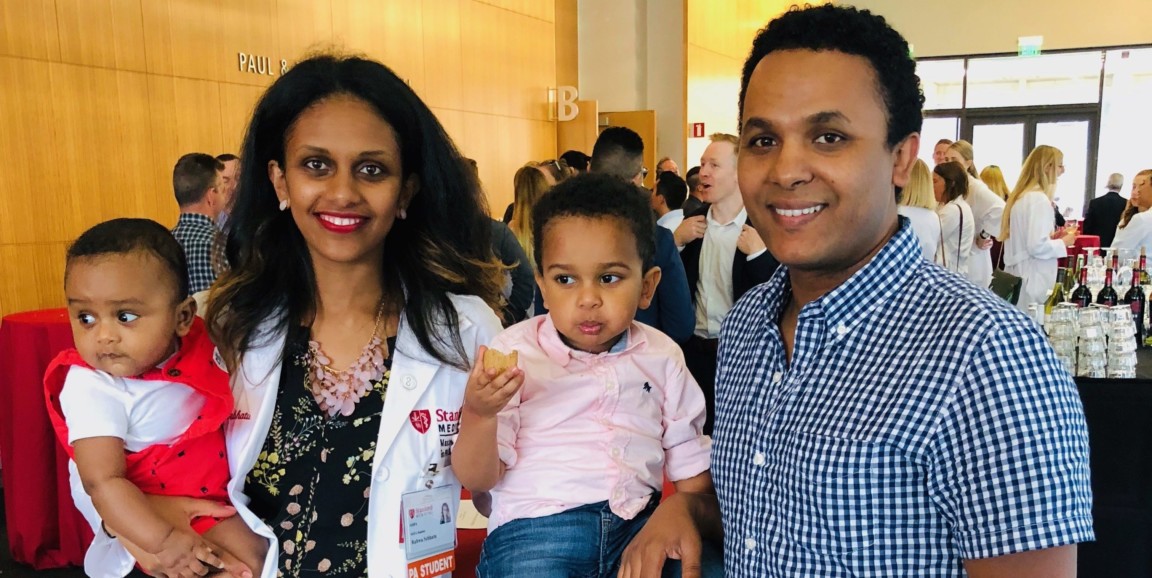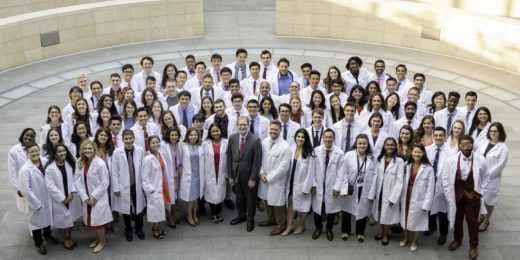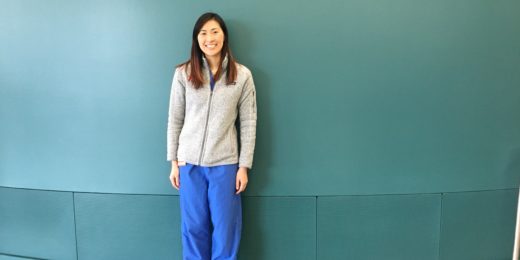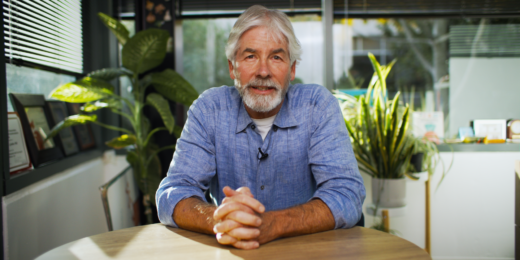In an instant, Rahwa Sebhatu went from a privileged child of a business owner to a stranger who didn't belong in her own country -- Ethiopia.
Everything changed in 1998, when she was in fourth grade. At the beginning of the school year, Sebhatu and her three brothers enjoyed a middle-class lifestyle in the capital city of Addis Ababa, where their parents owned an automotive repair business and instilled in them the importance of education. The children attended a private, culturally diverse American school and Sebhatu spoke three languages.
But that May, war broke out between Ethiopia and neighboring Eritrea. During the two-year conflict that ensued, thousands of people of Eritrean origin, like Sebhatu's parents, would be deported from Ethiopia.
The soldiers came for her father first. He only had time to grab a few clothes. Too young to understand, Sebhatu said she mainly remembers her mother crying -- continuously. She can picture her mother packing up wedding gifts that would eventually get lost, struggling to sell her husband's business assets and getting jailed twice.
Children who used to be friends looked at Sebhatu and her siblings with hostility.
"People started to find out that we were Eritrean, and word got out that we were the enemy," Sebhatu said. "We couldn't believe how they would say that. We shared so many memories and here we are, starting to become strangers."
That July, Sebhatu, her mother and her siblings, were deported too.

They were reunited with Sebhatu's father and lived in an apartment under a dictatorship in Eritrea. Sebhatu said her family's evangelical church was forcibly closed by the government in 2004, and the pastors were put in prison.
Despite the conditions, she worked hard and excelled in school. She graduated from high school at age 16 following a grueling year at the Sawa military camp, where Eritreans spend their final year of secondary education, and some are conscripted indefinitely.
She said she went through months of combat training and manual labor in extreme weather with very little food and frequent punishment.
"I learned so much from the people around me," she said. "I try to look at the positive in every negative. That gives me peace and hope. Whenever I dwell on the negative things, I tend to become bitter and that hasn't helped me."
Sebhatu's life changed dramatically when she won an American green card and was fortunate enough to receive an exit visa to leave Eritrea legally.
With $300, Sebhatu moved to Oakland, where her grandmother had a cousin willing to take her in. Sebhatu first enrolled in community college and then transferred to University of California, Davis, where she said she graduated with a 3.9 GPA and a bachelor's degree in biological sciences.
Science and medicine had beckoned Sebhatu since she was a little girl in Ethiopia. Back then, she dreamed of curing diseases like HIV and malaria. An early medical experience cemented her interest in health care: when a procedure she underwent as an infant left her with frequent pain and infection, a volunteer doctor from Germany ended her discomfort with a minor surgery.
"From then on, it was like I had never been sick," she said. "From that day forward, I wanted to become a provider myself."
She was the first in her family to graduate from college. By that time, her mom and brothers were able to join her in Oakland. Sebhatu married her best friend in the U.S. -- a hardware engineer whose family went to the same church in Eritrea. She recently became a U.S. citizen.
While working as a patient care coordinator for a University of California, San Francisco geriatric primary care clinic, Sebhatu decided to apply to physician assistant programs. Pregnant with her first child at the time, she saw the PA track as an opportunity to provide patient care while affording her the work-life balance she sought.
Sebhatu is in her second year in Stanford's physician assistant master's program. She was one of three PA students to receive a one-time scholarship created by Simon Stertzer, MD, professor emeritus in cardiovascular medicine.
After graduation, Sebhatu plans to work for three years in an underserved health care community as a requirement of her National Health Service Corps Scholarship. After that, she sees herself continuing to provide primary care in a low-income community where she can develop relationships with patients.
"Being able to learn from world-class experts ... that is a blessing," she said. "Honestly, this is a dream come true."
Photo by Steve Fisch






